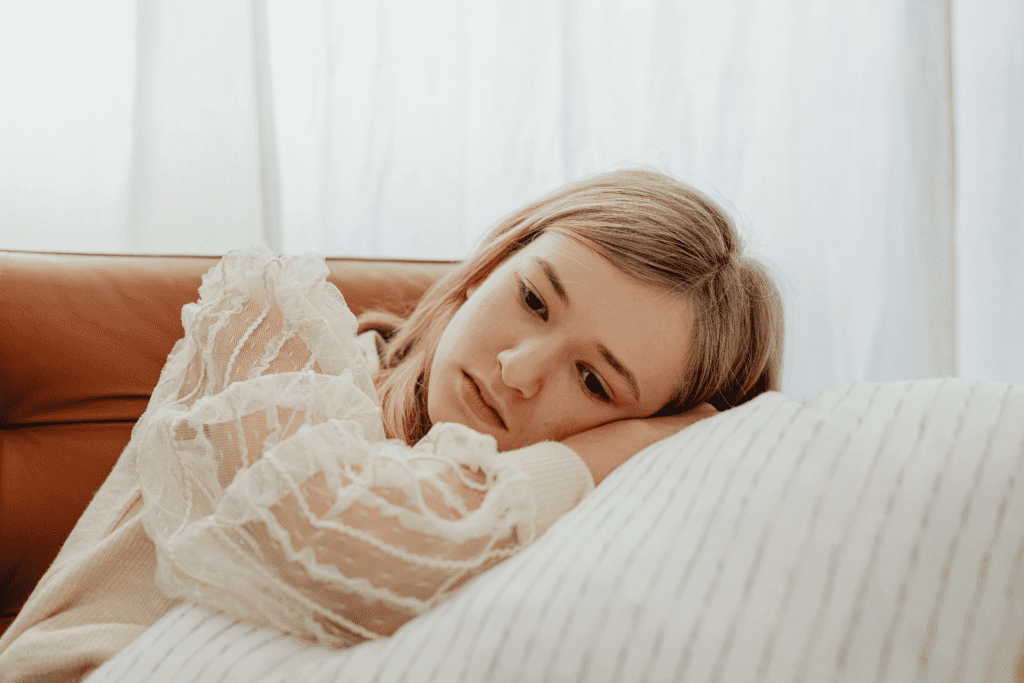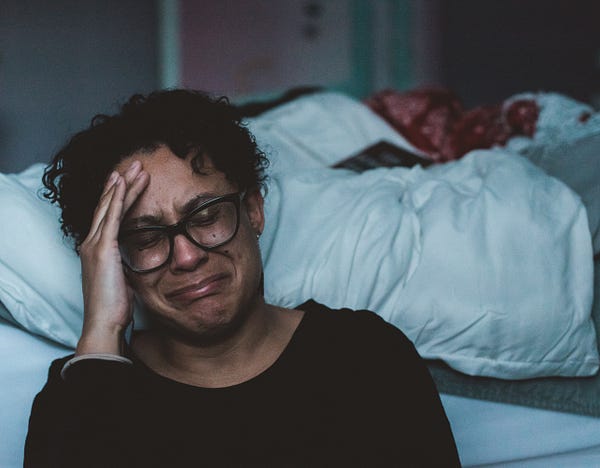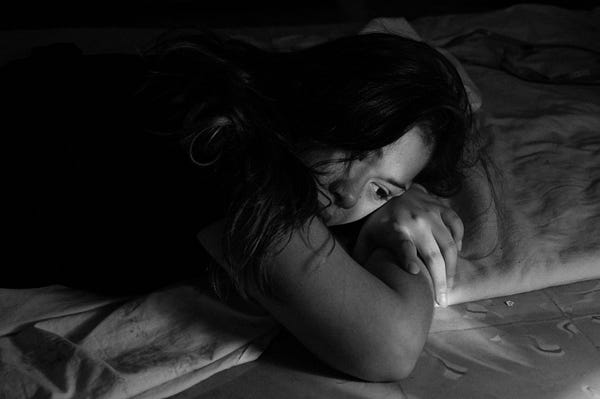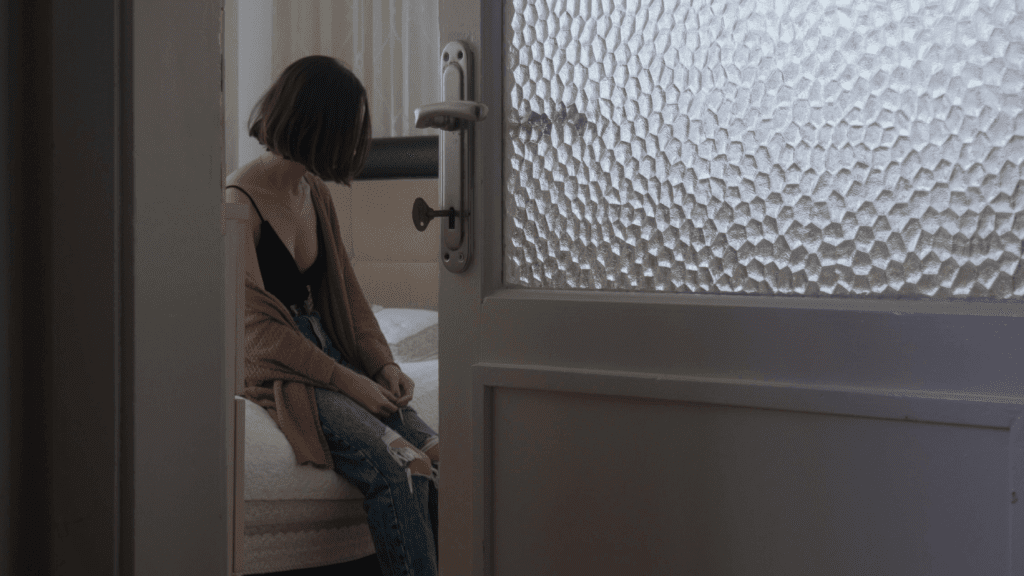Last updated on December 18th, 2024 at 03:12 am
- 1. Understanding Sleeping Pill Dependence
- 1.1 Tolerance Development
- 1.2 Psychological Dependence
- 1.3 Underlying Sleep Disorders
- 2. The Withdrawal Process
- 2.1 Common Withdrawal Symptoms
- 2.2 Timeline of Withdrawal
- 3. The Importance of Medical Detoxification
- 3.1 Safety and Monitoring
- 3.2 Symptom Management
- 3.3 Tapering Strategies
- 3.4 Psychological Support
- 4. Strategies for Managing Withdrawal Symptoms
- 4.1 Sleep Hygiene Practices
- 4.2 Stress Reduction Techniques
- 4.3 Physical Activity
- 4.4 Nutritional Support
- 5. Long-Term Recovery and Relapse Prevention
- 5.1 Cognitive Behavioral Therapy for Insomnia (CBT-I)
- 5.2 Addressing Co-occurring Disorders
- 5.3 Building a Support Network
- 5.4 Developing Healthy Coping Mechanisms
- 6. The Role of Alternative Sleep Aids
- 6.1 Melatonin Supplements
- 6.2 Herbal Remedies
- 6.3 Aromatherapy
- 6.4 Acupuncture
- 7. The Importance of Professional Guidance
- 8. Physical and Psychological Impact of Sleeping Pill Withdrawal
- 9. Risk Factors Influencing Sleeping Pill Withdrawal
- 10. Managing Symptoms During Withdrawal
- 11. Inpatient and Outpatient Treatment Options
- 12. Role of Detox Facilities in Recovery
- 13. Pill Detox Timeline and Duration
- 14. Addressing Psychological and Behavioral Health Issues
- 15. The Role of Behavioral Health in Treatment Programs
- 16. Coping with Sleeping Pill Withdrawal Insomnia
- 17. Addressing Potential Risks of Abrupt Cessation
- 18. Long-Term Strategies for Successful Recovery
- 19. Family Involvement in Recovery
- 20. The Importance of Medical Attention During Detox
- 21. Relapse Prevention and Building a Support Network
- 22. Understanding the Detoxification Duration
- 23. The Need for Individualized Treatment Plans
- 24. Addressing Chemical Imbalances During Withdrawal
- 25. Effective Treatment in a Medical Detox Facility
- 26. Treating Common Side Effects of Withdrawal
- 27. Addressing Feelings of Fatigue and Energy Levels
- 28. Understanding the Impact on Cognitive Function
- 29. Role of Inpatient Rehab in Severe Addictions
- 30. Outpatient Setting for Milder Addiction Cases
- 31. Overcoming Drug Cravings During Detox
- 32. Long-Term Solution and Relapse Prevention
- 33. Medical Detox for Severe Withdrawal Symptoms
- 34. The Benefits of Family Therapy
- 35. Addressing Potential Health Concerns During Detox
- 36. Non-Medical Interventions for Better Sleep Regulation
- 37. Use of Counter Sleep Aid During Withdrawal
- 38. Monitoring for Severe Symptoms in Detox Centers
- 39. The Challenges of the Detoxification Process
- 40. Sleeping Pill Withdrawal Help and Guidance
- 41. Addressing Memory Loss and Cognitive Decline
- 42. Addressing Physical Addiction and Symptoms of Withdrawal
- Frequently Asked Questions
- What Are Common Symptoms Of Sleeping Pill Withdrawal And Detox?
- How Can Health Care Providers Assist With Sleeping Pill Detox?
- What Are The Dangers Of Abrupt Cessation Of Sleeping Pills?
- How Long Does The Detox Process Take For Sleeping Pill Addiction?
- What Are The Symptoms Of Intense Withdrawal From Sleeping Pills?
- Can Outpatient Programs Help With Sleeping Pill Detox?
- What Psychological Symptoms Are Common During Sleeping Pill Withdrawal?
- What Are The Physical Effects Of Sleeping Pill Withdrawal?
- How Can A Detoxification Process Be Safely Managed At Home?
- What Is The Role Of Inpatient Rehab In Detoxing From Sleeping Pills?
- What Are Some Non-Pharmacological Approaches To Assist With Sleeping Pill Withdrawal?
- Can Family Therapy Assist In The Recovery From Sleeping Pill Addiction?
- How Do Detox Centers Handle Severe Addictions To Sleeping Pills?
- What Are The Risks Of Long-Term Use Of Sleeping Pills?
- How Does Cognitive Function Change After Withdrawal From Sleeping Pills?
- What Should Be Done If Severe Withdrawal Symptoms Are Experienced?
- How Do Treatment Facilities Assist In Preventing Relapse Post-Detox?
- How Do Sleeping Pill Withdrawal Symptoms Affect Mental Health?
- Can Natural Sleep Aids Be Effective During The Detox Process?
- How Can Behavioral Health Support Aid In Sleeping Pill Detox?
Sleeping pills, while effective for short-term insomnia relief, can lead to significant health concerns when used improperly or for extended periods. As tolerance builds, individuals may find themselves requiring higher doses to achieve the same effects, potentially leading to dependence and addiction.
When attempting to discontinue use, many experience a range of withdrawal symptoms that can be both physically and psychologically challenging. Let’s explore proven methods for sleeping pill withdrawal and detox, offering tips for a safe transition, managing cravings, and finding supportive treatment options.
1. Understanding Sleeping Pill Dependence
Sleeping pill dependence often develops gradually, with many users unaware of the growing reliance on these medications. Several factors contribute to this dependence:
1.1 Tolerance Development
Regular use of sleeping pills can lead to tolerance, where the body becomes accustomed to the drug’s effects. This results in diminished efficacy over time, prompting users to increase their dosage to achieve the desired sleep-inducing effect.
1.2 Psychological Dependence
Many individuals develop a psychological reliance on sleeping pills, believing they cannot fall asleep without them. This mental dependence can be as challenging to overcome as physical dependence.
1.3 Underlying Sleep Disorders
In some cases, sleeping pill dependence masks underlying sleep disorders that remain unaddressed. Proper diagnosis and treatment of these conditions are crucial for long-term sleep health.
2. The Withdrawal Process
When an individual decides to stop using sleeping pills, they may experience a range of withdrawal symptoms. The severity and duration of these symptoms can vary based on factors such as the type of medication, dosage, duration of use, and individual physiology.
2.1 Common Withdrawal Symptoms
Withdrawal from sleeping pills can manifest in various ways, including:
- Rebound insomnia
- Anxiety and restlessness
- Irritability and mood swings
- Fatigue and drowsiness
- Nausea and gastrointestinal distress
- Sweating and tremors
- Muscle tension and pain
- Difficulty concentrating
- Panic attacks
- In severe cases, seizures or hallucinations
2.2 Timeline of Withdrawal
The withdrawal process typically follows a general timeline, though individual experiences may vary:
- Days 1-3: Initial symptoms begin to appear, often including anxiety, restlessness, and difficulty sleeping.
- Days 4-7: Symptoms typically peak during this period, with increased intensity of insomnia, mood disturbances, and physical discomfort.
- Weeks 2-4: Most acute symptoms begin to subside, though some individuals may experience prolonged effects, particularly related to sleep and mood.
- Months 1-6: Some individuals may experience post-acute withdrawal syndrome (PAWS), with intermittent symptoms persisting for several months.
3. The Importance of Medical Detoxification
Given the potential severity of withdrawal symptoms, medical detoxification is strongly recommended for individuals discontinuing sleeping pill use. This process offers numerous benefits:
3.1 Safety and Monitoring
Medical professionals can closely monitor vital signs and adjust treatment as needed, ensuring patient safety throughout the withdrawal process.
3.2 Symptom Management
Healthcare providers can administer medications to alleviate withdrawal symptoms, making the process more comfortable and manageable for patients.
3.3 Tapering Strategies
Rather than abrupt discontinuation, medical detox often involves a gradual tapering of medication dosage, reducing the intensity of withdrawal symptoms.
3.4 Psychological Support
Medical detox programs typically include counseling and support to address the psychological aspects of withdrawal and addiction.


4. Strategies for Managing Withdrawal Symptoms
In addition to medical support, several strategies can help individuals navigate the challenges of sleeping pill withdrawal:
4.1 Sleep Hygiene Practices
Implementing good sleep hygiene habits can support natural sleep patterns during withdrawal:
- Maintaining a consistent sleep schedule
- Creating a relaxing bedtime routine
- Optimizing the sleep environment (dark, quiet, cool)
- Avoiding screens before bedtime
- Limiting caffeine and alcohol intake
4.2 Stress Reduction Techniques
Stress management can significantly impact sleep quality and overall well-being during withdrawal:
- Meditation and mindfulness practices
- Deep breathing exercises
- Progressive muscle relaxation
- Yoga or gentle stretching
4.3 Physical Activity
Regular exercise can help regulate sleep patterns, reduce anxiety, and improve overall mood. However, it’s important to avoid intense workouts close to bedtime.
4.4 Nutritional Support
A balanced diet rich in sleep-promoting nutrients can aid in recovery:
- Foods high in tryptophan (turkey, eggs, cheese)
- Complex carbohydrates
- Magnesium-rich foods (leafy greens, nuts, seeds)
- Herbal teas (chamomile, valerian root)
5. Long-Term Recovery and Relapse Prevention
Overcoming sleeping pill dependence is a process that extends beyond the initial withdrawal period. Long-term recovery involves addressing underlying issues and developing sustainable sleep habits.
5.1 Cognitive Behavioral Therapy for Insomnia (CBT-I)
CBT-I is a highly effective, non-pharmacological treatment for insomnia that helps individuals identify and change thoughts and behaviors that interfere with sleep.
5.2 Addressing Co-occurring Disorders
Many individuals with sleeping pill dependence may have underlying mental health conditions, such as anxiety or depression. Proper diagnosis and treatment of these conditions are crucial for long-term recovery.
5.3 Building a Support Network
Connecting with others who have experienced similar challenges can provide valuable support and encouragement throughout the recovery process.
5.4 Developing Healthy Coping Mechanisms
Learning to manage stress, anxiety, and sleep difficulties without relying on medication is essential for maintaining long-term recovery.
6. The Role of Alternative Sleep Aids
As individuals transition away from sleeping pills, exploring alternative sleep aids can be beneficial:


6.1 Melatonin Supplements
Melatonin, a hormone naturally produced by the body to regulate sleep-wake cycles, is available as a supplement and may help some individuals improve sleep quality.
6.2 Herbal Remedies
Certain herbs, such as valerian root, passionflower, and lemon balm, have been traditionally used to promote relaxation and sleep.
6.3 Aromatherapy
Essential oils like lavender, chamomile, and bergamot may help create a calming environment conducive to sleep.
6.4 Acupuncture
Some individuals find acupuncture helpful in managing insomnia and reducing anxiety associated with sleeping pill withdrawal.
7. The Importance of Professional Guidance
While this information provides a comprehensive overview of sleeping pill withdrawal and recovery, it’s crucial to emphasize the importance of seeking professional medical advice. Every individual’s situation is unique, and a healthcare provider can offer personalized guidance tailored to specific needs and circumstances.
Overcoming sleeping pill dependence is a challenging but achievable goal. With proper support, evidence-based strategies, and a commitment to long-term health, individuals can successfully navigate the withdrawal process and develop sustainable sleep habits for improved overall well-being.
8. Physical and Psychological Impact of Sleeping Pill Withdrawal
Sleeping pill withdrawal and detox can have a profound impact on both the body and mind. Physical symptoms can range from gastrointestinal disturbances to body spasms.
Psychological symptoms such as feelings of anxiety, intense cravings, and cognitive dysfunction can also occur. These common symptoms indicate the challenges faced during the detoxification process.
9. Risk Factors Influencing Sleeping Pill Withdrawal
The severity of sleeping pill withdrawal symptoms can depend on numerous factors, including the type of drug and dosage levels. Long-term users are at greater risk for severe withdrawal symptoms, including body spasms and dangerous side effects.
Heavy consumption of sleeping pills can lead to a physical addiction. This increases the potential health concerns during the withdrawal period.
10. Managing Symptoms During Withdrawal
Managing the symptoms of withdrawal requires a comprehensive approach that includes both medical and psychological care. Medication-assisted treatment, including anti-anxiety medications, can provide relief for individuals experiencing severe symptoms.
Professional treatment often incorporates effective non-medical intervention strategies like behavioral therapy. These interventions address mental symptoms such as drug cravings, anxiety, and perceptual disturbances.
11. Inpatient and Outpatient Treatment Options
Treatment facilities offer both inpatient rehab and outpatient treatment programs for those dealing with pill addiction. Inpatient treatment provides an intensive level of care where individuals can receive consistent medical attention.
An outpatient treatment setting may be suitable for those with a lower level of addiction. This option allows them to continue daily activities while participating in a structured treatment plan. Some popular facilities include Granite Recovery Centers, Green Mountain Treatment Center, and Psyclarity Health.
12. Role of Detox Facilities in Recovery
A medical detox facility plays a crucial role in helping individuals navigate the withdrawal side effects safely. These centers help manage severe withdrawal symptoms and provide a controlled detox experience.
By using a gradual tapering method of treatment, health care providers ensure that patients experience fewer negative side effects. This process promotes a more comfortable sleep environment during detox. Detox services at reputable centers such as Avenues Recovery offer structured support for a successful recovery.


13. Pill Detox Timeline and Duration
The sleeping pill detoxification timeline varies based on individual factors such as level of addiction, dosage, and duration of use. Generally, the sleeping pill withdrawal timeline can span from days to several months.
Intense withdrawal often peaks around days 4-7. The prolonged period of detox can present challenging physical and psychological symptoms.
14. Addressing Psychological and Behavioral Health Issues
Addressing mental health disorders is crucial during the detoxification process. Mental illness, such as depression or anxiety, may arise during the withdrawal period.
Incorporating mental health services, such as individual therapy sessions with a mental health counselor or family therapy, helps treat both aspects of addiction and co-occurring disorders. This holistic approach ensures a long-term solution for overcoming pill abuse.
15. The Role of Behavioral Health in Treatment Programs
Behavioral health services are an essential component of a treatment program for pill addiction treatment. These services help individuals tackle drug cravings and develop healthy coping strategies.
Outpatient programs and inpatient facilities both provide behavioral health treatment options. Centers such as Resurgence Behavioral Health specialize in comprehensive addiction treatment, including behavioral therapy for those in recovery.
16. Coping with Sleeping Pill Withdrawal Insomnia
Sleeping pill withdrawal insomnia is one of the most persistent symptoms of withdrawal. Developing good sleep hygiene, including limiting exposure to blue light and maintaining a comfortable sleep environment, can help alleviate insomnia.
Implementing non-medical interventions such as cognitive behavioral therapy and utilizing natural sleep aids, like herbal teas and melatonin supplements, can support individuals striving to achieve adequate sleep during detox.
17. Addressing Potential Risks of Abrupt Cessation
Abrupt cessation of sleeping pills can lead to dangerous withdrawal symptoms, such as irregular heartbeat and severe muscle pain. Health care professionals recommend a slow tapering process to minimize the risk of severe side effects.
A medically supervised detox period in an inpatient facility is vital for individuals struggling with severe addictions. This approach helps reduce the potential risks involved.
18. Long-Term Strategies for Successful Recovery
Ensuring long-term recovery requires addressing underlying aspects of addiction and establishing sustainable sleep habits. A treatment plan that involves non-pharmacological approaches, such as yoga, mindfulness, and exercise, can be beneficial.
These practices help regulate circadian rhythm and neurotransmitter activity. Utilizing prescribed sleep aids or popular sleep aids in conjunction with professional treatment provides additional support for chronic insomnia.
19. Family Involvement in Recovery
Family therapy is a vital aspect of pill rehab and plays an essential role in an individual’s path to recovery. Support from family members helps reinforce positive behaviors.
Family members can provide emotional comfort during difficult times. Treatment centers like Granite Recovery Centers emphasize family involvement to support long-term sobriety.
20. The Importance of Medical Attention During Detox
Access to medical attention is critical throughout the sleeping pill detoxification process, especially for heavy users. Health care providers can monitor individuals for signs of dangerous drug side effects and severe withdrawal symptoms.
Receiving professional support from medical detox facilities ensures a safe detox experience. Medical attention is crucial to help individuals navigate their withdrawal challenges effectively and safely.


21. Relapse Prevention and Building a Support Network
Preventing relapse is an ongoing process that extends beyond the detoxification timeline. Building a robust support network, including attending outpatient programs, helps individuals maintain long-term sobriety.
Engaging with peer groups is another effective strategy for relapse prevention. Treatment facilities like Resurgence Behavioral Health provide tools and strategies to manage cravings for sleep medication.
22. Understanding the Detoxification Duration
The sleeping pill detoxification duration varies greatly depending on the patient’s circumstances, including dosage levels and the type of drug used. A tailored treatment program ensures that each individual receives proper care.
Prolonged support from healthcare professionals is essential for overcoming adverse effects. This support helps individuals navigate their detoxification challenges effectively.
23. The Need for Individualized Treatment Plans
Each person’s experience with pill withdrawal symptoms is unique. An individualized treatment plan is crucial to address specific needs.
Customized approaches help manage both physical and psychological symptoms effectively. This targeted treatment ensures a successful withdrawal process.
24. Addressing Chemical Imbalances During Withdrawal
Chemical imbalances can occur due to prolonged sleeping pill use. These imbalances impact neurotransmitter systems, making withdrawal even more challenging.
Health care professionals can provide treatments to address these imbalances during the detoxification process. Addressing chemical imbalances is critical to ensuring a successful recovery.
25. Effective Treatment in a Medical Detox Facility
A medical detox facility provides round-the-clock monitoring and ensures a safe environment for detox. The detox process often includes a combination of medication-assisted treatment and non-medical interventions.
This comprehensive approach supports both physical addiction and mental health issues. It helps ensure that withdrawal symptoms are managed effectively.
26. Treating Common Side Effects of Withdrawal
Common side effects of sleeping pill withdrawal, such as muscle aches and night sweats, can be debilitating. Medical detox facilities administer medications to manage these withdrawal side effects effectively.
Holistic therapies are also offered to promote comfort. Addressing these adverse side effects early can promote a more comfortable detox period.
27. Addressing Feelings of Fatigue and Energy Levels
Feelings of fatigue are common during the detoxification process. Proper nutrition can help improve energy levels during detox.
Regular physical activity is also recommended. Health care providers suggest adequate sleep to counter sleep deprivation and its negative effects.


28. Understanding the Impact on Cognitive Function
Long-term use of sleeping pills can impact cognitive function. During detox, individuals may experience memory issues and feelings of confusion.
Behavioral health therapies can help restore cognitive abilities. Therapy supports reducing the impact of memory loss during the detoxification period.
29. Role of Inpatient Rehab in Severe Addictions
Inpatient rehab provides a high level of care for individuals with severe addictions. It offers a controlled environment where both mental health issues and physical symptoms can be addressed.
This level of care is crucial for those experiencing severe withdrawal symptoms. Inpatient rehab ensures a safe detox experience.
30. Outpatient Setting for Milder Addiction Cases
An outpatient setting can be effective for those with a milder level of addiction. Outpatient treatment programs offer flexibility for individuals to receive care.
Individuals can maintain daily responsibilities while participating in a structured treatment plan. Treatment facilities offering outpatient treatment ensure continuous support throughout the recovery journey.
31. Overcoming Drug Cravings During Detox
Drug cravings are a significant challenge during the detox process. Professional treatment programs often employ various behavioral therapies to manage drug cravings effectively.
Addressing these cravings is vital to maintain progress during withdrawal. Behavioral health strategies provide essential support in managing intense cravings.
32. Long-Term Solution and Relapse Prevention
To ensure long-term sobriety, it’s essential to develop strategies to prevent relapse. Outpatient programs are key elements of a long-term solution for sleeping pill addiction.
Family support networks also play a critical role in relapse prevention. Maintaining lifestyle changes helps support continued sobriety.
33. Medical Detox for Severe Withdrawal Symptoms
Severe withdrawal symptoms, such as perceptual disturbances and irregular heartbeat, require immediate medical attention. A medical detox facility provides the appropriate level of care needed.
Treatment centers like Green Mountain Treatment Center offer specialized care for severe cases. Professional supervision ensures a safer withdrawal process.
34. The Benefits of Family Therapy
Family involvement during treatment can enhance the chances of a successful recovery. Family therapy offers support to both the individual and their loved ones.
It addresses emotional needs during difficult times. Family therapy provides a platform for family members to understand the detox experience.
35. Addressing Potential Health Concerns During Detox
Potential health concerns such as gastrointestinal disturbances and allergic reactions can occur during detox. Health care professionals play a critical role in managing these issues.
Immediate intervention helps ensure that individuals can continue on their path to recovery. Managing health concerns effectively helps prevent complications.
36. Non-Medical Interventions for Better Sleep Regulation
Non-medical interventions, such as meditation and yoga, can aid in sleep regulation. These techniques help individuals experiencing sleeping pill withdrawal insomnia.
They promote relaxation and help re-establish a natural sleep pattern. Such interventions reduce reliance on counter sleep medication.
37. Use of Counter Sleep Aid During Withdrawal
Counter sleep aids, including herbal supplements, can be helpful during withdrawal. Natural sleep aids like valerian root and passionflower can assist with sleep regulation.
These aids are often recommended alongside professional treatment. They help improve sleep quality without causing dependency.
38. Monitoring for Severe Symptoms in Detox Centers
Health care providers in detox centers closely monitor for severe symptoms such as body spasms and feelings of confusion. Ensuring patient safety during detoxification stages is crucial for successful recovery.
Continuous monitoring helps in managing symptoms of withdrawal effectively. It also minimizes the risk of dangerous withdrawal symptoms.
39. The Challenges of the Detoxification Process
The detoxification process presents challenges like intense cravings and withdrawal side effects. A structured treatment plan can help individuals face these challenges.
Facilities offering specialized detox services ensure individuals receive the right support. This support results in a smoother detox experience.
40. Sleeping Pill Withdrawal Help and Guidance
Sleeping pill withdrawal help is available through various treatment facilities and rehab centers. Guidance from health care providers is crucial to ensure a successful withdrawal and recovery journey.
Resources such as Mental Health Services Administration provide information and support for those seeking treatment. Utilizing professional guidance increases the chances of successful recovery.
41. Addressing Memory Loss and Cognitive Decline
During withdrawal, individuals might experience memory loss and cognitive decline due to changes in neurotransmitter activity. Behavioral therapies, such as cognitive behavioral therapy, can help manage these symptoms.
Therapy supports the restoration of cognitive abilities throughout the detox period. Addressing cognitive decline is a vital part of the recovery process.
42. Addressing Physical Addiction and Symptoms of Withdrawal
Physical addiction to sleeping pills often manifests through common symptoms like muscle pain and digestive disturbances. A well-rounded treatment program helps manage these symptoms of withdrawal effectively.
Health care services provide medication to alleviate these physical symptoms. Addressing physical symptoms early can improve comfort during the detoxification process.


From Embrace Inner Chaos to your inbox
Transform your Chaos into authentic personal growth – sign up for our free weekly newsletter! Stay informed on the latest research advancements covering:
Narcissistic Personality Disorder (NPD)
Frequently Asked Questions
What Are Common Symptoms Of Sleeping Pill Withdrawal And Detox?
Common symptoms of sleeping pill withdrawal include physical symptoms like body spasms, muscle aches, and gastrointestinal disturbances. Psychological symptoms can include intense cravings, feelings of anxiety, and cognitive disruptions.
These symptoms often manifest soon after abrupt cessation and can vary in intensity based on the duration of use and dosage levels. The detox process can be challenging, making professional supervision, such as that provided by Granite Recovery Centers, important for ensuring a safe detox.
How Can Health Care Providers Assist With Sleeping Pill Detox?
Health care providers play an important role in sleeping pill detox by crafting a treatment plan tailored to the patient’s specific symptoms and level of addiction. Medical professionals at a detox facility often manage severe withdrawal symptoms such as irregular heartbeat and intense cravings.
Inpatient treatment, such as that offered by Psyclarity Health, can provide comprehensive support, including medication-assisted treatment. This approach helps minimize dangerous withdrawal symptoms and provides a path to recovery that meets the patient’s needs.
What Are The Dangers Of Abrupt Cessation Of Sleeping Pills?
Abrupt cessation of sleeping pills can lead to dangerous withdrawal symptoms, including severe anxiety, gastrointestinal disturbances, and irregular heartbeat. Stopping cold turkey can cause a peak of withdrawal symptoms, often accompanied by severe discomfort.
Health care professionals advise against sudden cessation, recommending a tapered approach supervised by a treatment center like Resurgence Behavioral Health. Medical experts manage the gradual reduction of dosage levels to mitigate adverse effects.
How Long Does The Detox Process Take For Sleeping Pill Addiction?
The detox period for sleeping pill addiction typically lasts from a few days to a couple of weeks, depending on the severity of addiction and dosage history. The timeline can vary for long-term users who may experience prolonged symptoms such as sleep deprivation and cravings.
Symptoms commonly peak within the first few days and gradually taper off over time. At facilities like Green Mountain Treatment Center, a comprehensive approach aims to ensure comfort throughout detox.
What Are The Symptoms Of Intense Withdrawal From Sleeping Pills?
Intense withdrawal symptoms from sleeping pills can include night sweats, body spasms, and muscle aches. Psychological symptoms such as severe anxiety and insomnia returns are also common.
These symptoms are more severe for individuals with a history of heavy consumption or pill abuse. Health care providers often recommend inpatient rehab, like those at Avenues Recovery, to manage these symptoms effectively.
Can Outpatient Programs Help With Sleeping Pill Detox?
Outpatient programs can be helpful for sleeping pill detox, especially for individuals with lower addiction levels. Such programs typically involve regular visits to a treatment center for counseling and medication management.
The focus is on ensuring long-term sobriety while allowing patients to continue their routines. At Granite Recovery Centers, outpatient services include therapy sessions and medication-assisted treatment tailored to each patient.
What Psychological Symptoms Are Common During Sleeping Pill Withdrawal?
Common psychological symptoms during withdrawal include anxiety, intense cravings, and cognitive impairment. These symptoms can greatly impact the individual’s mental well-being.
Support from mental health counselors, such as those at Resurgence Behavioral Health, can be crucial in managing these symptoms. Counseling provides coping strategies for overcoming psychological issues during withdrawal.
What Are The Physical Effects Of Sleeping Pill Withdrawal?
Physical effects of sleeping pill withdrawal often include muscle pain, body spasms, and gastrointestinal disturbances. These effects can range from mild to severe, depending on substance abuse history and dosage levels.
The physical discomfort can be intense and may require intervention in a treatment facility such as Green Mountain Treatment Center. Medical professionals can provide treatment and supervision to ease these symptoms.
How Can A Detoxification Process Be Safely Managed At Home?
Managing the detox process for sleeping pill withdrawal at home requires careful preparation and healthcare support. It is important to create a comfortable sleep environment and use non-medical interventions like cognitive behavioral techniques.
For those with less severe addiction, an outpatient setting under the guidance of healthcare professionals, such as at Avenues Recovery, can provide remote support. This ensures the detox process is as safe as possible.
What Is The Role Of Inpatient Rehab In Detoxing From Sleeping Pills?
Inpatient rehab is often recommended for individuals with a severe level of addiction to sleeping pills. These facilities offer round-the-clock supervision, a controlled environment, and access to treatment.
Facilities like Psyclarity Health focus on both physical symptoms and mental health issues that accompany withdrawal. This comprehensive approach ensures safety during the critical stages of detox.
What Are Some Non-Pharmacological Approaches To Assist With Sleeping Pill Withdrawal?
Non-pharmacological approaches to assist with withdrawal include lifestyle changes, counseling, and natural sleep aids. These methods aim to provide a long-term solution without relying on sedatives.
Creating a comfortable sleep environment and maintaining sleep regulation through healthy habits are key. Facilities like Green Mountain Treatment Center incorporate these alongside medical treatments to provide holistic care.


Can Family Therapy Assist In The Recovery From Sleeping Pill Addiction?
Family therapy plays an important role in helping individuals recover from addiction by providing support and improving communication. It also addresses family dynamics that may contribute to substance abuse.
Involving family members in the treatment process at facilities like Avenues Recovery can lead to better outcomes. Family therapy helps create a supportive environment, reducing the risk of relapse and enhancing sobriety.
How Do Detox Centers Handle Severe Addictions To Sleeping Pills?
Detox centers handle severe addictions by offering supervised detox programs, medication-assisted treatment, and a structured environment. These centers manage symptoms like irregular heartbeat and severe anxiety.
Facilities like Granite Recovery Centers provide individualized treatment plans. The focus is on reducing dangerous symptoms while addressing both psychological and physical aspects of addiction.
What Are The Risks Of Long-Term Use Of Sleeping Pills?
Long-term use of sleeping pills can lead to health concerns such as addiction, memory loss, and chemical imbalances. Chronic use also affects neurotransmitter activity, disrupting natural sleep regulation.
Long-term users often need help from healthcare professionals, such as those at Resurgence Behavioral Health. These professionals help manage withdrawal and restore normal circadian rhythm functions.
How Does Cognitive Function Change After Withdrawal From Sleeping Pills?
Withdrawal from sleeping pills can significantly affect cognitive function, leading to memory issues and difficulty concentrating. These symptoms are usually temporary but can be distressing.
Engaging in activities that support cognitive health, as part of a treatment program at facilities like Psyclarity Health, can help improve cognitive function. This supports recovery as the brain adjusts to the absence of sedatives.
What Should Be Done If Severe Withdrawal Symptoms Are Experienced?
If severe withdrawal symptoms occur, such as intense cravings or an irregular heartbeat, immediate medical attention is necessary. Inpatient treatment at a dedicated center like Green Mountain Treatment Center is recommended.
Severe symptoms can lead to serious health risks. Professional treatment ensures the safety of individuals during detox instead of attempting to manage it alone.
How Do Treatment Facilities Assist In Preventing Relapse Post-Detox?
Treatment facilities assist in preventing relapse post-detox by offering a structured program that includes therapy and support groups. Medication management is also provided to address ongoing withdrawal symptoms.
Facilities like Granite Recovery Centers offer outpatient programs and continuous support. Behavioral therapies help maintain long-term sobriety and reduce relapse risk.
How Do Sleeping Pill Withdrawal Symptoms Affect Mental Health?
Withdrawal symptoms can significantly affect mental health, leading to anxiety and depression. These symptoms can worsen without proper care and support.
Mental health services, such as those provided by Resurgence Behavioral Health, offer counseling and therapy to address these issues. This helps individuals develop healthier coping mechanisms.
Can Natural Sleep Aids Be Effective During The Detox Process?
Natural sleep aids, such as herbal teas and melatonin, can be effective during detox. They provide a safer alternative for sleep regulation without the addictive properties of medications.
Treatment centers like Avenues Recovery recommend these alternatives as part of a holistic approach. The focus is on creating a comfortable sleep environment to support recovery.
How Can Behavioral Health Support Aid In Sleeping Pill Detox?
Behavioral health support can aid significantly in detox by helping individuals manage cravings and psychological symptoms. Cognitive-behavioral therapy (CBT) addresses the mental health disorders linked to pill abuse.
Centers like Psyclarity Health offer behavioral health services, including therapy and counseling. This support is crucial for a successful, long-term recovery.




